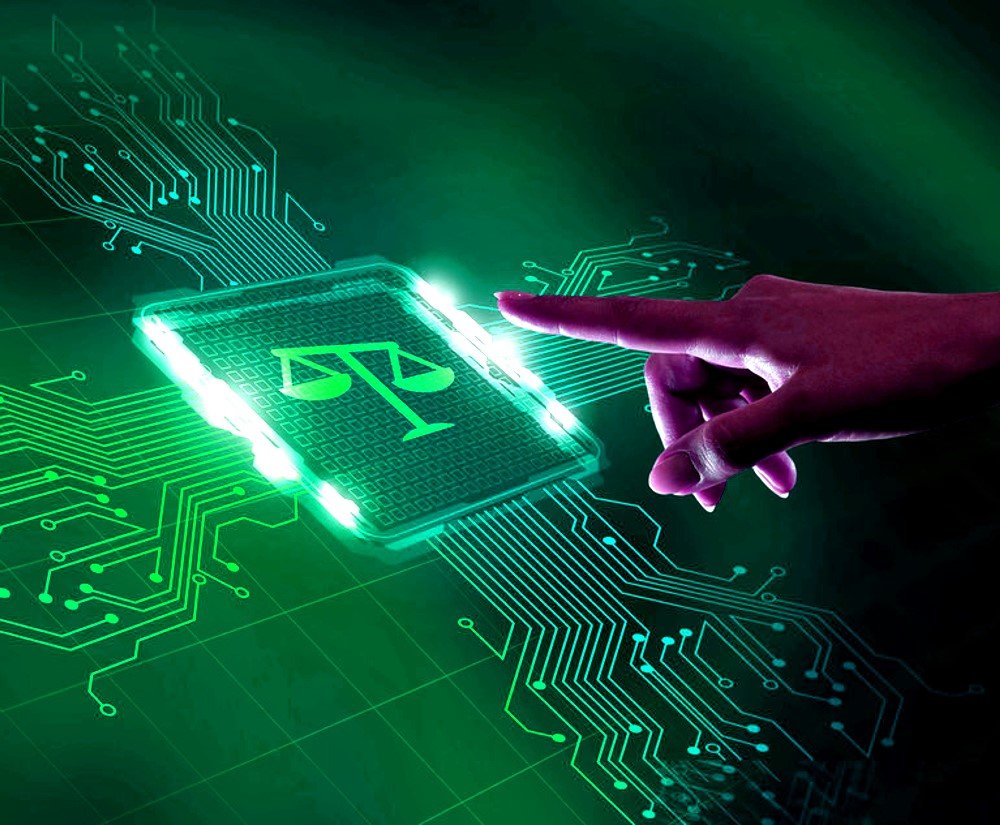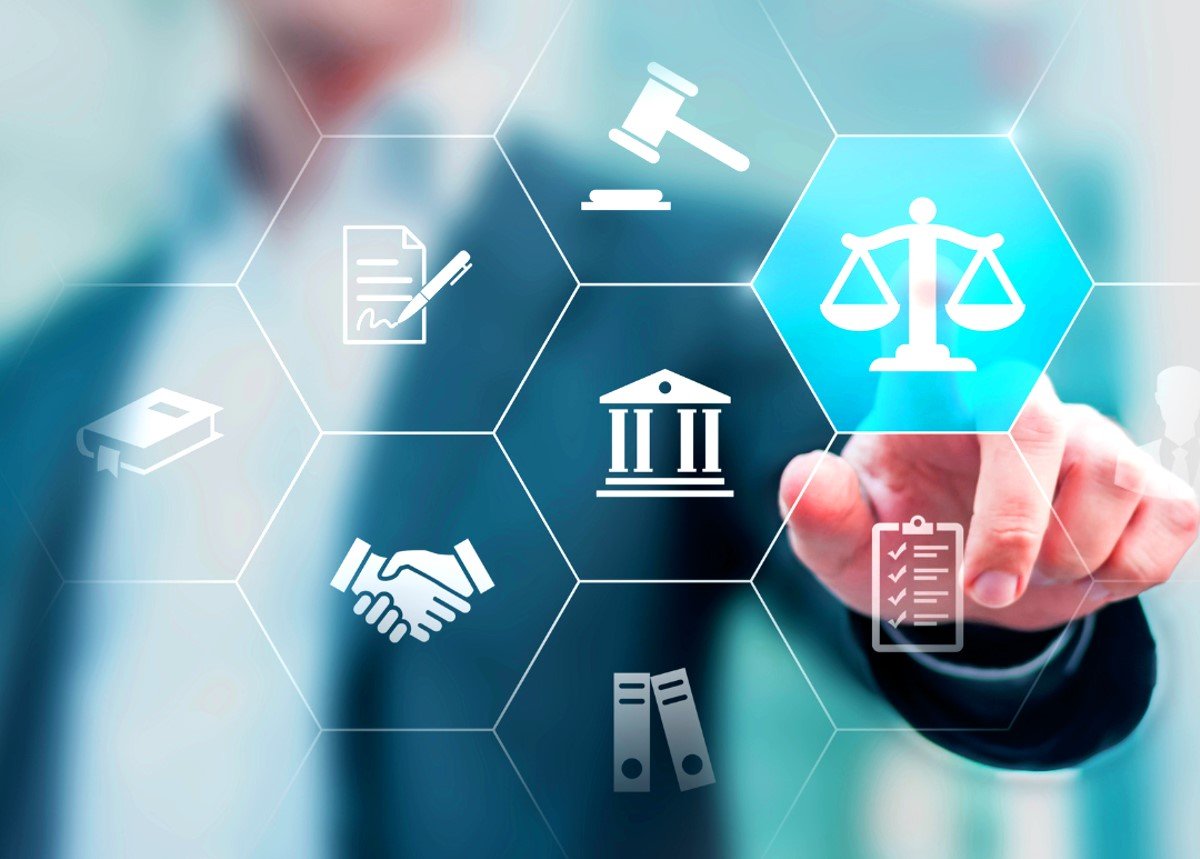Legal Technology Revolution: How Technology is Transforming the Legal Landscape

The legal landscape, once synonymous with traditional processes and paperwork, is undergoing a profound transformation thanks to the advent of legal technology. In this article, we will explore the evolution of the legal technology revolution, the key technologies driving this revolution, and the impact it has on various facets of the legal sector.
Introduction
In the not-so-distant past, legal proceedings were often associated with cumbersome paperwork, prolonged processes, and limited accessibility. However, the surge in legal technology has reshaped this narrative, ushering in a new era of efficiency, accessibility, and innovation.
The Emergence of Legal Technology Revolution
Legal Tech, short for Legal Technology, encompasses a range of technologies designed to streamline and enhance the delivery of legal services. This includes tools and platforms leveraging artificial intelligence, blockchain, and cloud computing to revolutionize how legal professionals operate.
Key Technologies Shaping Legal Tech
Artificial Intelligence (AI) in Legal Processes
One of the cornerstones of legal technology is the integration of artificial intelligence into various legal processes. AI algorithms are being utilized for tasks such as legal research, contract review, and even predictive analysis for case outcomes.
Blockchain and its Impact on Legal Transactions
Blockchain, known for its role in secure and transparent transactions, is making waves in legal technology by ensuring the integrity of contracts and transactions. Smart contracts, powered by blockchain, automate and validate legal agreements.
Cloud Computing for Legal Data Management
Cloud computing has emerged as a game-changer for legal data management. Law firms now have the flexibility to access and manage their data securely from anywhere, fostering collaboration and efficiency.
Automation in Legal Processes
Document Automation for Efficiency
The automation of document creation and review processes has significantly reduced the time and effort required for routine legal tasks. Legal professionals can now focus on more complex aspects of their work, enhancing overall productivity.
Case Management through Automated Systems
Legal Tech has introduced automated case management systems that streamline the workflow of law firms. These systems track case progress, deadlines, and client interactions, ensuring a more organized and efficient legal practice.
Enhancing Access to Legal Services
Online Platforms Connecting Clients and Lawyers
Legal technology has facilitated easier connections between clients and legal professionals through online platforms. Clients can now find lawyers based on expertise, reviews, and ratings, making the legal process more transparent and accessible.
Mobile Applications for Legal Advice
The rise of mobile applications dedicated to legal advice has democratized access to legal services. People can seek guidance on legal matters conveniently through their smartphones, bridging the gap between legal professionals and the public.
Data Security in Legal Tech
The Importance of Secure Legal Data Management
As legal tech processes involve sensitive information, the importance of secure data management cannot be overstated. Legal Tech emphasizes robust security measures to protect client information and maintain confidentiality.
Role of Encryption in Legal Tech
Encryption plays a pivotal role in safeguarding legal data from unauthorized access. Legal tech platforms employ advanced encryption techniques to ensure the privacy and security of communication and stored data.
Challenges and Concerns in Legal Tech
Ethical Considerations in AI-Powered Legal Decisions
The integration of AI in legal decision-making raises ethical concerns. Ensuring fairness, transparency, and accountability in AI algorithms is crucial to prevent biased outcomes and maintain public trust.
Potential Job Displacement in the Legal Sector
While legal technology brings undeniable benefits, there is concern about potential job displacement within the legal sector. Automation of certain tasks may lead to a shift in the skill set required for legal professionals.
Adoption of Legal Tech by Law Firms
Benefits for Law Firms Embracing Technology
Law firms that embrace legal tech experience numerous benefits, including increased efficiency, reduced costs, and improved client satisfaction. The adoption of technology positions firms to stay competitive in a rapidly evolving legal landscape.
Success Stories of Firms Implementing Legal Tech
Several law firms have successfully implemented legal tech solutions, showcasing tangible improvements in their operations. These success stories serve as inspiration for other firms considering the integration of technology.
Impact on Legal Education
Changes in the Legal Education Curriculum
The evolution of legal technology has prompted changes in legal education curricula. Law schools are now incorporating courses on technology and its applications in the legal profession to prepare future lawyers.
Importance of Tech Literacy for Future Lawyers
Tech literacy is becoming a prerequisite for future lawyers. Understanding how to leverage legal tech tools enhances a lawyer’s ability to navigate the modern legal landscape and deliver efficient services.
Read More: Types of Legal Services: A Guide to the Legal Landscape
Regulatory Developments in Legal Tech
Government Regulations on Legal Tech
Governments are recognizing the need to regulate legal technology to ensure ethical standards and protect consumers. The rapid evolution of legal technology is prompting the development of legal frameworks to resolve the associated challenges and opportunities.
Global Variations in Legal Tech Regulations
Legal tech regulations vary globally, with different jurisdictions adopting unique approaches. Understanding these variations is crucial for legal tech developers and practitioners working across borders.
Future Trends in Legal Tech
Predictions for the Evolution of Legal Tech
Experts predict a continued evolution of legal technology, with advancements in AI, blockchain, and other technologies. The integration of these technologies will further redefine how legal services are delivered and consumed.
Integration of Emerging Technologies
The convergence of legal technology with emerging technologies, such as augmented reality and the Internet of Things, opens new possibilities for the legal sector. These integrations are expected to drive innovation and efficiency in legal processes.
Case Studies
Real-World Examples of Legal Tech Applications
Examining real-world examples of legal tech applications provides insights into the practical benefits and challenges faced by legal professionals. Case studies showcase the diverse ways in which legal tech is transforming the industry.
Positive Outcomes and Lessons Learned
Exploring positive outcomes and lessons learned from legal tech implementations highlights the potential for positive change within the legal sector. Identifying best practices can guide others in leveraging technology effectively.
Client Experiences with Legal Tech
Testimonials from Clients Using Legal Tech Services
Client testimonials offer a firsthand perspective on the impact of legal technology on individuals seeking legal services. Positive experiences highlight the value of technology in improving accessibility and client satisfaction.
Improved Accessibility and Satisfaction
Legal technology contributes to improved accessibility to legal services, ultimately leading to higher levels of client satisfaction. The convenience of online platforms and mobile applications enhances the overall client experience.
The Human Touch in Legal Tech
Balancing Technology with Personalized Legal Services
While technology brings efficiency, the human touch remains crucial in the legal profession. Balancing technology with personalized services ensures that clients receive the attention and understanding they deserve.
Importance of Human Expertise in Legal Matters
Despite technological advancements, the expertise of legal professionals remains indispensable. Human judgment, empathy, and interpretation are qualities that technology cannot fully replace in complex legal matters.
Conclusion
In conclusion, the Legal Tech Revolution is reshaping the legal landscape, offering unprecedented opportunities for efficiency, accessibility, and innovation. As technology continues to advance, the legal industry must strike a balance between embracing innovation and preserving the essential human elements of the profession.
FAQs
- How is AI used in legal processes?
- AI is used in legal processes for tasks such as legal research, contract review, and predictive analysis for case outcomes.
- What challenges does legal technology pose to the traditional legal sector?
- Legal technology poses challenges such as ethical considerations in AI-powered decisions and concerns about potential job displacement.
- How can law firms benefit from embracing legal technology?
- Law firms can benefit from increased efficiency, reduced costs, and improved client satisfaction by embracing legal technology.
- What role does encryption play in legal tech?
- Encryption plays a crucial role in safeguarding legal data from unauthorized access and ensuring the privacy and security of communication and stored data.
- How is legal education adapting to the rise of legal technology?
- Legal education is adapting by incorporating courses on technology to prepare future lawyers adequately for the evolving legal landscape.








One Comment